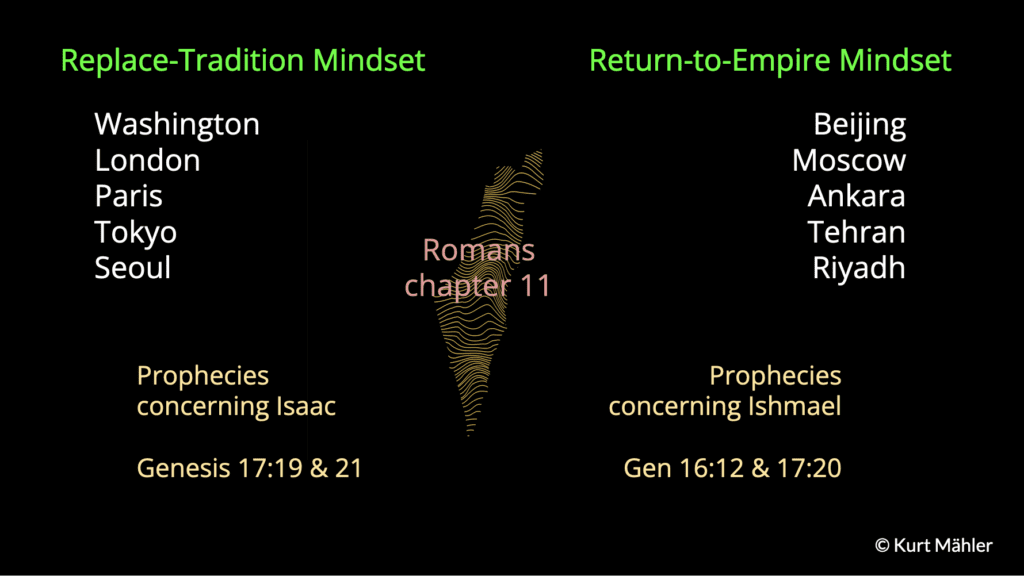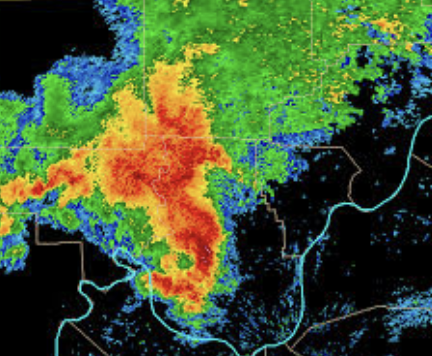On Daniel 10:1-11:1
12/14/2023What do Christmas angels and Daniel’s angels have in common? Both battle for your joy on the other side of delays and sorrow. Let’s explore Daniel 10:1 to 11:1 to see an example of this. I recommend reading this in the New Living Translation paired with another translation of your choice. In the notes are Scripture references. After the notes is the list of some of the sources for these notes.
Our exploration of Daniel 10:1-11:1 is organized into three parts:
- The Man in Mourning for Delayed Hope
- Daniel’s Margin Mobilizes Angels
- The Joy of Being “On Heaven’s Doppler”

1. The Man in Mourning for Delayed Hope
Daniel is highly trusted by the world and deeply loved by the Lord. Can you say the same in your profession and your role in the community? It is April 23, approximately 536 BC. He is in his late seventies or early eighties and has worked for four kings. Imagine a White House official so trustworthy that presidents as different as Biden, Trump, Obama, and Bush all say, “Oh, that one, yes! He is so trustworthy and skilled we need to keep him on. Okay, he doesn’t play politics to my liking, and he spends a lot of time in prayer to his god, but he is faithful, skilled, and honest, and that’s too rare to pass up. Plus I know he won’t betray me. Somebody has to get things done around here while I’m embroiled in wars and political scuffles.”
Daniel is deeply saddened by the state of his nation, the state of current events, and the apparent distance of all things from the promises of God. The fulfillment of the prophecies of Isaiah 45 and Jeremiah 25 have seemingly stalled. Though Cyrus had decreed that the Jews could return and rebuild, only a relatively small number did so (about 42,360), and they encountered a desolation and opposition too intimidating to overcome beyond developing their own homesteads. The majority of the Jews remain in prosperous Babylon and Persia, unmotivated to depart and pioneer from zero.
Meanwhile Daniel is receiving memoranda from the disciples of the prophet Ezekiel elsewhere in the empire near the Chebar River. This member of the highly priestly class is having visions revealing the Lord is at work both now and in the future, a mingling of judgment and restoration. Yet, without an understanding of how to apply these visions, for the present time all hope seems deferred.
And as if this were not enough there is Daniel’s own prophetic experiences: three overwhelming visions and the ominous dreams and signs he interprets for his kings. And yet nothing is clear except that it is not working out the way Daniel had anticipated. He is in mourning over the delay and lack of understanding. (Are we not, therefore, just like him? We discern that Lord is at work, but we cannot explain exactly how, nor do we have a sense of how much longer it will be that we remain so far removed from experiencing the fullness of the Lord’s promises.)
Daniel calls a time out. He departs his residence and place of work at Susa for the Tigris River with a group of men who fear God also, perhaps those he is discipling.
For the Jew without a temple or homeland, the river is a default place for mourning and prayer. (See Psalm 137 and Lydia in Acts 16). Daniel chooses this off-site location rather than participating in the Passover celebration of that month (Nisan) with fellow Jews in Persia and Babylon. Imagine you are so grieved and perplexed over a matter that you withdraw from a Galveston family Christmas and spend it in the Anahuac National Wildlife Refuge on the east side of Galveston Bay. You take what is necessary but no extra comforts. You take a few close friends with you who are also willing to pass on the holidays and keep you company in prayer because they know you are “going through it.” This is what Daniel did.
Daniel leveraged his pain points to make margin for communication with the Lord. He set timed boundaries on good things that sometimes get in the way of God things. “No pleasant food, no meats, no wine or lotions.” (Lotions are those things which make life “smoother,” such as our smart phones.) Through intentional choices of self denial and self control, he made room for communication with the Lord. He “prepared Him room” as the Christmas carol “Joy to the World” says.
Timed boundaries on good things establish space for our communication with the Lord to unfold. They are not a form of legalism, they are a form of wisdom. Let us explain by way of illustration: Imagine you are in deep conversation with a loved one in a restaurant, but the music is too loud. What do you say to the manager? “Turn it down, please, so I can hear my friend speaking to me.” Or let us say you take out your earbuds so you can converse with a friend. No one would accuse you of being legalistic; they would commend you for being mature.
Practicing the Way Daniel Models for Us
- What pain points do you have regarding your loved ones, regarding the state of the church, or regarding current events?
- Leverage it to make margin for communication with the Lord. Set timed boundaries on “good things that sometimes get in the way of God things.” Example: a certain food, drink, or phone habit.

2. Daniel’s Margin Mobilizes Angels
Daniel 10:1-11:1 directly informs events in the lived experience of the first Christians in Acts. In Acts 9, Paul beholds a vision of the Lord while his companions do not see the vision but are overcome with dread. In Acts 12, the disciples mistake Peter for “his angel,” indicating their assumption that the guardian angel of each person may look similar to the one they are serving. The Jewish reader would have seen in these chapters in Acts an authentication of the experiences since they are similar to Daniel’s. Likewise, the Jewish reader would have seen in Daniel’s vision of 10:1-11:1 a reference to Noah’s encounter with Michael in the Book of Noah, which is the third portion of the Book of Enoch; a similarity which authenticated Daniel’s experience.
Daniel 10:1-11:1 also directly informs events in the prophetic experience of the first Christians. In Revelation 1, Christ sends “his angel” (22:16) to communicate with John, whose vision of the glorious man is parallel to that of Daniel’s. And, just as we do in Daniel’s experience, in Revelation 12:7 and Jude 1:9 we find the Archangel Michael at war with the invisible rulers of darkness over the outcome of the Lord’s purposes and the protection of the Lord’s people.
Angels are hierarchical in organization and diverse in their functions. Among them are spirit princes designated as overseers or “watchers” assigned over every people and every place. Above them in rank are the seven archangels, the “seven spirits” before the Lord’s throne in Revelation 4:5 and 5:6. A portion of these spirit princes have “departed from their first position” and rebelled, leading to their judgment and destruction at the consummation of all things (Jude 1:6, I Peter 2:4). For trustworthy literature on angels, I commend you to the relevant sources listed at the end of these notes. I do not encourage internet binging on pop assertions about angels, since it is difficult to verify the truth of much of it. Instead, read the ancient literature first, the “old books,” as C.S. Lewis recommends.
The role of angels: they are managers of
- Messages
- Materials
- Mindsets
Angels are commissioned to serve mankind in his calling to
- Walk with God
- Develop the earth
- Cultivate life-giving relationships [friendship, discipleship, mentoring, marriage, and family]

In the above painting, see how the artist has shown that the angels are attentive to the man as he experiences the Holy Spirit while taking materials of the earth — the paint pigments — to portray Christ our Lord, the author and restorer of life-giving relationships.
Scripture citations regarding angels
- Regarding Angels Who Remain Faithful to Serve God and Mankind
- Hebrews 1:13-14, Revelation 12:7-9, Matt 24:29-31
- Regarding Angels Who Are Unfaithful to Serve God and Mankind
- Ephesians 6:12 (NLT) For we are not fighting against flesh-and-blood enemies, but against evil rulers and authorities of the unseen world, against mighty powers (literally, “cosmocrats”) in this dark world, and against evil spirits in the heavenly places.
- Job 1:8-12, Psalm 82:6, Jude 1:6, 2 Peter 2:4
- Deuteronomy 32:8 (Greek version, the Septuagint), which is a source of Paul’s description of the nations and God’s purpose for them in Acts 17:26-28
- See also Sirach 17:17, respected Jewish wisdom literature employed by early Christians for discipleship. Sirach 17:17 is an exegesis of Deuteronomy 32:8.
The goal of spiritual warfare is to
- Remove your confidence
- Block communication
- Test or build your character (the choice is yours)
The battle for our confidence pertains to all areas: confidence in our own heart, confidence toward others, and confidence toward the Lord. The battle for clear communication applies to both our communication with God and one another. What forms the basis for confidence and good communication? Truth. “And now, Daniel, I will show you what is in the book of truth.” (Dan 10:21)

Parallel to the invisible realm is the visible realm. They affect one another.
In the visible realm
- There are human authorities over every people and every place
- On the Dark-Realm Doppler: the more influence a human has, the more the spirit-princes target them to animate their mindsets with evil
- The Lord desires good leadership disengaged from ungodly spirit-princes
- Human authorities are appointed to
- reward good
- punish evil
- make space for life to flourish [Paul calls this “peaceful and quiet lives marked by godliness and dignity” 1 Timothy 2:2]
- Scripture citations on the calling of human authorities
- Timothy 2:2
- Romans 13:1-7
- I Peter 2:13-17
The goal of the ungodly spirit princes: leverage human authorities for the
- removing the confidence of people
- blocking their communication with God and each other
- stunting character growth through distractions and discouragements
Examples of mindsets of the spirit princes of Greece and Persia: one suggested way to see their effect on the nations and pray for their leaders in this hour according to what we find in Daniel 10.
- Prince of Greece: a replace-tradition or away-from-tradition mindset. As per the example of Alexander the Great, who overturned local traditions and imposed a universal culture of idolatry and passion.
- Idolatry: any object of worship is permissible
- Passion: any object of desire is possible.
- Prince of Persia: a return-to-empire mindset. As per the example of many nations through the ages which attempt to restore their golden age and extend their reach.

3. The Joy of Being “On Heaven’s Doppler”
In Daniel 10:1-11:1 we find that simplicity is on the other side of complexity if we have the courage to practice it. And this simplicity leads to joy. A personal illustration of this is the account in the footnote below of the Fallen Dragon of Kabul, February 19971
There is the joy of knowing we are deeply loved by the Lord. The glorious, angelic man announces to Daniel:
From the first day you set your heart to understand and humble yourself, your words were heard, and I have come because of your words.
Daniel 10:12 (NLT)
What threat was it to the spirit princes that one man and one message to him should be worth so much warfare? Answer: the joy of knowing that:
- We are personally remembered
- We will overcome the trials
- The Lord’s purposes will prevail
In this case, the success of the angels in battle released a confidence that would be passed down to all generations from that time on and to us now reading Daniels’ account.
Following Daniel 10:1-11:1, the prophecies in chapters 11 and 12 assure the victory of the Messiah and the Lord’s people after many geopolitical trials and culture wars. What is the essence of those prophecies, as well as the three preceding it and the dream and signs also described in Daniel’s book? It is an essence that the spirit princes contended desperately against, knowing that if we know them, believe them, and respond to the Lord, their doom increases, as does our share in the kingdom of heaven coming to earth. In other words: our joy cannot be taken from us because we know the end of the story. The Lord has said:
“Your people are going to make it. So will the Lord’s purposes for them. And you have a full share in those outcomes because you humbled yourself to seek Me. You have been on heaven’s Doppler radar all along.”

Daniel discovered that the fruit of leveraging his pain point to make margin for communication with the Lord was joy, specifically, a long-term joy that extended across generations.
The angels’ visit to Daniel is a down payment of joy. Ezra and Nehemiah will be an answer to Daniel’s sorrow about eighty years later when Nehemiah encourages a discouraged nation with the exhortation:
“The joy of the Lord is your strength!” (Neh 8:10)
Nehemiah and Ezra worship with joy on the completed city walls with a sound that is heard far away and disarms the hostility of Israel’s enemies. (Neh 12:43)
Daniel’s joy is double-fulfilled centuries later in Luke 2 at the Nativity. That joy is now overflowing and available to us as our portion, we who live in the face of all that mocks our hope and our joy.
In this matter of Daniel, therefore, we see that:
- Joy is the ultimate act of faith during the spiritual warfare against our confidence, communication, and character. It is the counterattack to that which is set against our hope. “Count it all joy when you experience diverse trials…” (James 1:2-4)
- Joy is a declaration of long-haul victory in light of the apparent delay in the fulfillment of the Lord’s promises and the distance we seem to have departed from them.
- Joy is a permeating gratitude rooted in unchanging conditions (His grace). Pastor José Rodriguez of Baton Rouge crafted this definition, and it strikes the mark in Daniel’s experience.
For what was unchanging in Daniel’s conditions in the passage we have explored? He was heard from the first day, he was precious to God, and he discovered that the Lord is faithful to follow through on every promise He has spoken. What a cause for joy!
Here is a personal illustration of these three points: the joy of David Leatherberry, a man with decades of experience in the sorrows in Afghanistan, experiences he recounts in his memoir, Afghanistan, My Tears. And yet, for the the tears he had shed, he imparted his joy in Peshawar, Pakistan, during a crisis involving Taliban harshness and missile strikes against al Qaeda camps in Afghanistan in the summer of 1998. Many fled to Peshawar as a result, and while the rest of the expat community was devastated and tempted to conclude that all hope was lost and all work wasted, David stood before us with great joy and a beaming smile saying, “This is not the end, it is only the beginning!” And he was right. The number of believers grew from 400 to 4,000 in the unfolding years.
How to get on heaven’s Doppler: Prepare Him room.
- Practice humility: “I won’t demand to have my way.”
- Practice simplicity: “I won’t demand to have it all.”
- Practice perseverance: “I won’t give up my hope in You.”

Christmas joy is always associated with angels. Though there are many kinds of angels, the angels described in Luke’s account of the nativity (2:13) are angel armies: “hosts,” a military term for organized divisions of military personnel such as battalions, regiments, squadrons, and fleets. The root of this word is also found in the word “strategy.” The angelic spokesman for these regiments says to the shepherds:
Luke 2:10: “Fear not: for, behold, I bring you good tidings of great joy, which shall be to all people.” (“great joy” = megas xará = “mega-joy”)
Why are these angelic companies the ones announcing the birth of our Lord? Because angels are at war against the spirit princes of this world to reach us with joy! The joy of God’s people knowing they are remembered, knowing that we will overcome, and knowing that He will fulfill His purpose to redeem the nations, a joy that triumphs over the powers of darkness through the incarnation, crucifixion, and resurrection.
The angels’ worshipful dialogue in Psalm 24 and the New Testament make it clear that even the loyal angels are not privileged with understanding the promises we enjoy until they see them lived out through us. Therefore they watch in wonder at how the grace of the Lord converts us into overcoming ones whose joy cannot be quenched.
Make room for the Lord and His angel armies to mobilize and strengthen you with the confidence that you are deeply loved and His promises will be fulfilled!
© Kurt Mähler
Practicing the Way according to Daniel 10:1-11:1
- What one practice will you do for 21 days to make margin for communication with the Lord? (Set a timed boundary on “a good thing that sometimes gets in the way,” perhaps certain foods, drinks, or phone habits.)
- What pain point about your loved ones will you seek the Lord on with this practice?
- What pain point about current events will you seek the Lord on with this practice?
Sources for This Message
- The Bible, various English versions such as the New Living Translation
- The Septuagint, Greek translations of the Book of Daniel and the Wisdom of Sirach, a respected Jewish work used by ancient Christians to train new believers such that it took on the name Church Book (Ecclesiasticus). Translation by Sir Lancelot C. L. Brenton.
- Athanasius, On the Incarnation . Church father commentary on the purpose of the spirit princes to pit people groups at war with one another for the unmaking of the Creator’s works. Athanasius was present at the Council of Nicea.
- Colon, Peter. The Exiles Return.
- Danielou, Jean. Angels and their Mission An account about angels centered around the incarnation and ascension of the Lord.
- De Young, Stephen, Apocrypha: An Introduction to Extra-Biblical Literature. Here we find references to the work of the fallen spirit princes (“the Watchers”) and the work of the Archangel Michael in the Book of Enoch and the Book of Noah, which is integrated into the latter book.
- Dionysius the Areopagite, Celestial Hierarchies . Named as an early convert to Christianity in Athens in Acts 17, he authored this early treatment of the role and nature of angels.
- Guzik, David (citing several evangelical sources and historical accounts), Blue Letter Bible
- Heiser, Michael . Angels: What the Bible Really Says about God’s Heavenly Host and The Unseen Realm
- Longman III, Temper The Book of Daniel – OT666-19, “Introduction to the Fourth Vision.” An evangelical, reformed perspective.
- Souman, Anthon, Return from Exile, Christian Study Library
- Special thanks also to the elders of my church community
- The Afghan proverbs say, “When Satan was thrown from heaven he landed in Kabul.” and “When Cain was driven from his land, he settled in Afghanistan.” When one draws lines connecting significant city sites in a certain way like when one connects stars to form a constellation, a dragon shape is revealed. I performed this exercise, connecting spiritual, military, and cultural sights such as Bala Hissar; the temple to Asmahi (sister of Cali, the goddess of destruction); the Tomb of the Lord of the Two Swords; ancient walls, etc. And, like those who had done this exercise before me, I found a symbol showing show the dragon alive and at work in the city, animating the mindset of the city for war, oppression and death! What did I do in response? I leveraged my pain point about the city’s spiritual condition. I sought the Lord about it. Then the word came to me: “Son, now that you know this about the city, do this: Remember the poor. Pray for the sick. Speak in parables. If you do these things as you share the gospel, you will see heaven fall like lightning.” (Luke 10:18) I did so, and, in a very small way, my wife and I, along with others, saw the mustard seed of the kingdom grow, and the number of disciples with it, albeit at the cost of many suffering much. Though our part in this miracle was quite small, quite small indeed, we did see it begin to happen. What is the point of reporting this experience? I made margin for the Lord’s communication, and in that space He taught me simplicity is always on the other side of complexity if we have the courage to practice it. And that simplicity leads to joy. ↩︎

Thanks for this Kurt. Going back to read this and study this as we begin 21 days of a fast and a prayer. Love your discernment you brought to us through this message.
So encouraging. I am grateful!